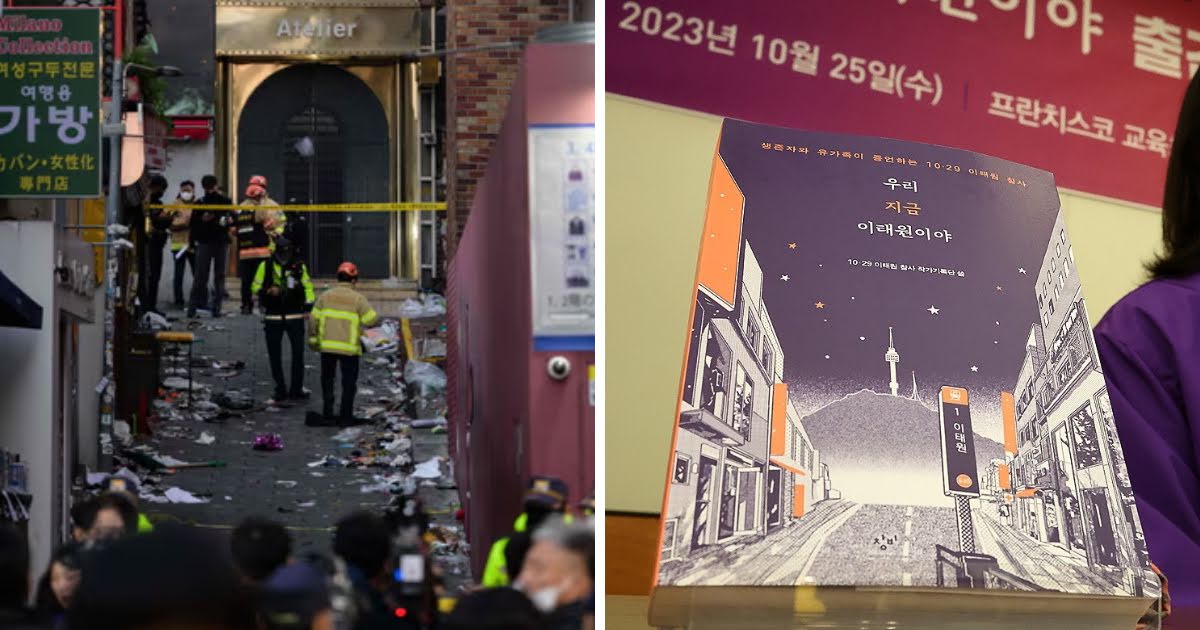A solemn air envelops Seoul as the city approaches the first anniversary of the Itaewon crowd crush tragedy that claimed 159 lives during last year’s Halloween festivities. As a tribute to the lost souls and a stark reminder of the catastrophe, a poignant memoir titled We Are in Itaewon Now has been published, encapsulating the harrowing yet resilient narratives of survivors, bereaved families, and the Itaewon community.
The book, a collaborative effort of 13 individuals comprising activists and ordinary citizens, serves as a canvas to the myriad emotions and experiences intertwined with the tragic day and the arduous journey of coping that followed. Kim Hye In, who lost her younger brother in the mishap, emphasizes the importance of remembering to prevent such calamities in the future.
I thought recording it in words would be the best way to do that.
— Kim Hye In
Kim Hye In next to the book. | Yonhap
We Are in Itaewon Now is structured into three segments, each delving into different perspectives and tales of loss, survival, and the aftermath. It explores the narratives of eight siblings who bore the loss of their family members, two accounts from individuals who lost their partners, and reflections from those living or working in Itaewon at the time of the tragedy. The book is not merely a retelling of the tragedy but a profound exploration of ordinary lives before the calamity, the horrifying reality of the day, and the lingering ghosts that haunt the survivors and the community.
Itaewon alley. | Getty Images
At the core of this memoir is the portrayal of the predominantly young victims, aged in their 20s and 30s, whose stories are painstakingly chronicled by Yoo Hae Jeong, an activist with a history of recording victims’ stories since the Sewol ferry disaster in 2014. The memoir resonates with the youthful zest of the victims, juxtaposed against a backdrop of societal prejudice and stigma that often silences their voices.
Bereaved families and writers of the book. | Yonhap
Lee Hyun Gyung, a contributor to the book, shares his personal journey of facing the Sewol ferry disaster at 20 and eight years later, the Itaewon tragedy. His narrative echoes a collective introspection on the recurring calamities, urging a deeper analysis into societal and administrative lapses rather than victim-blaming.
I keep asking why these tragedies continue to happen.
— Lee Hyun Gyung
| The New York Times
With an aim to further honor the memories of the departed, bereaved families have organized a public mourning event at Seoul Plaza this Sunday. The event, much like the memoir, strives to etch the Itaewon tragedy in public memory, imploring a collective responsibility to ensure such a mishap does not recur.



